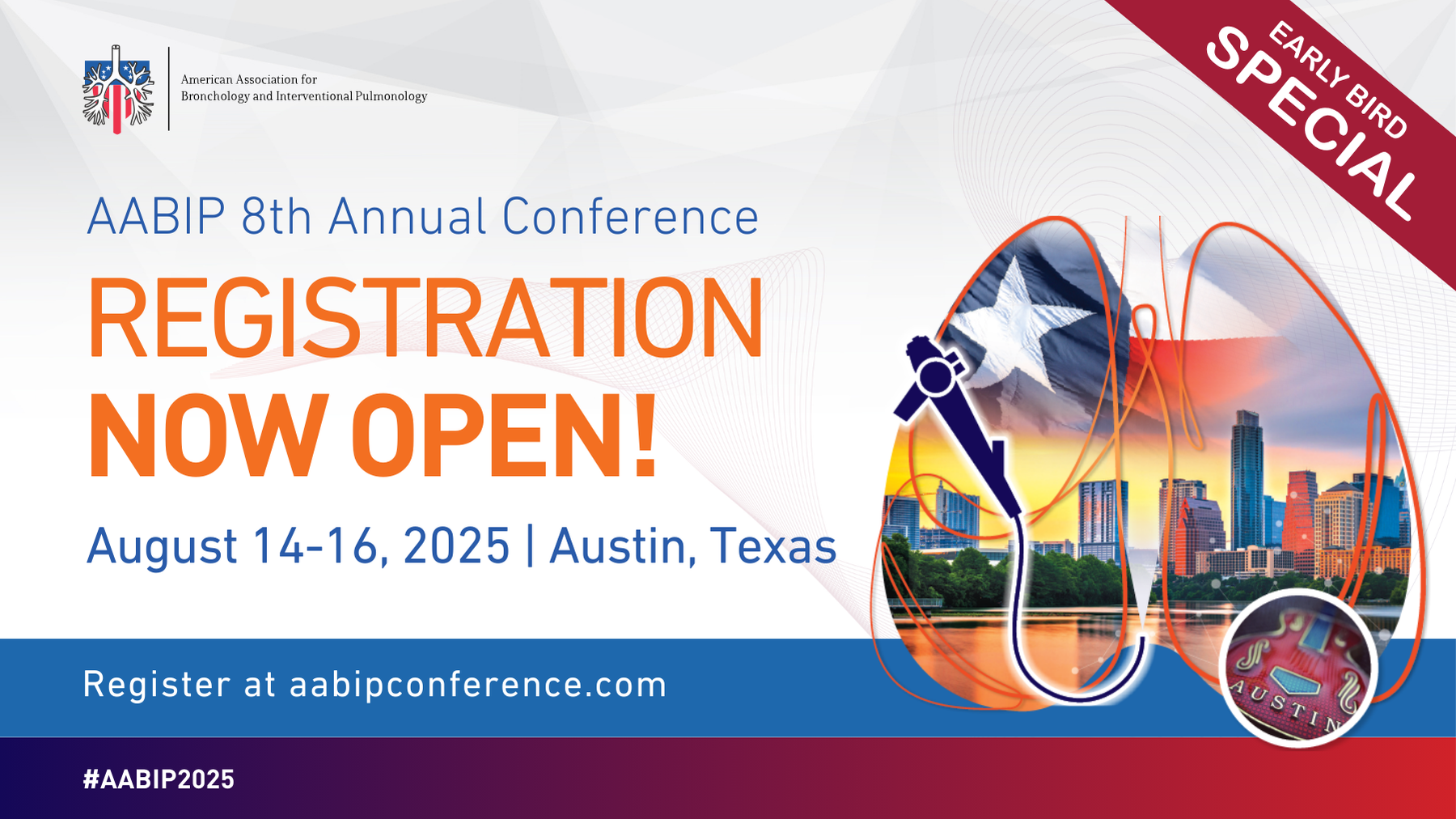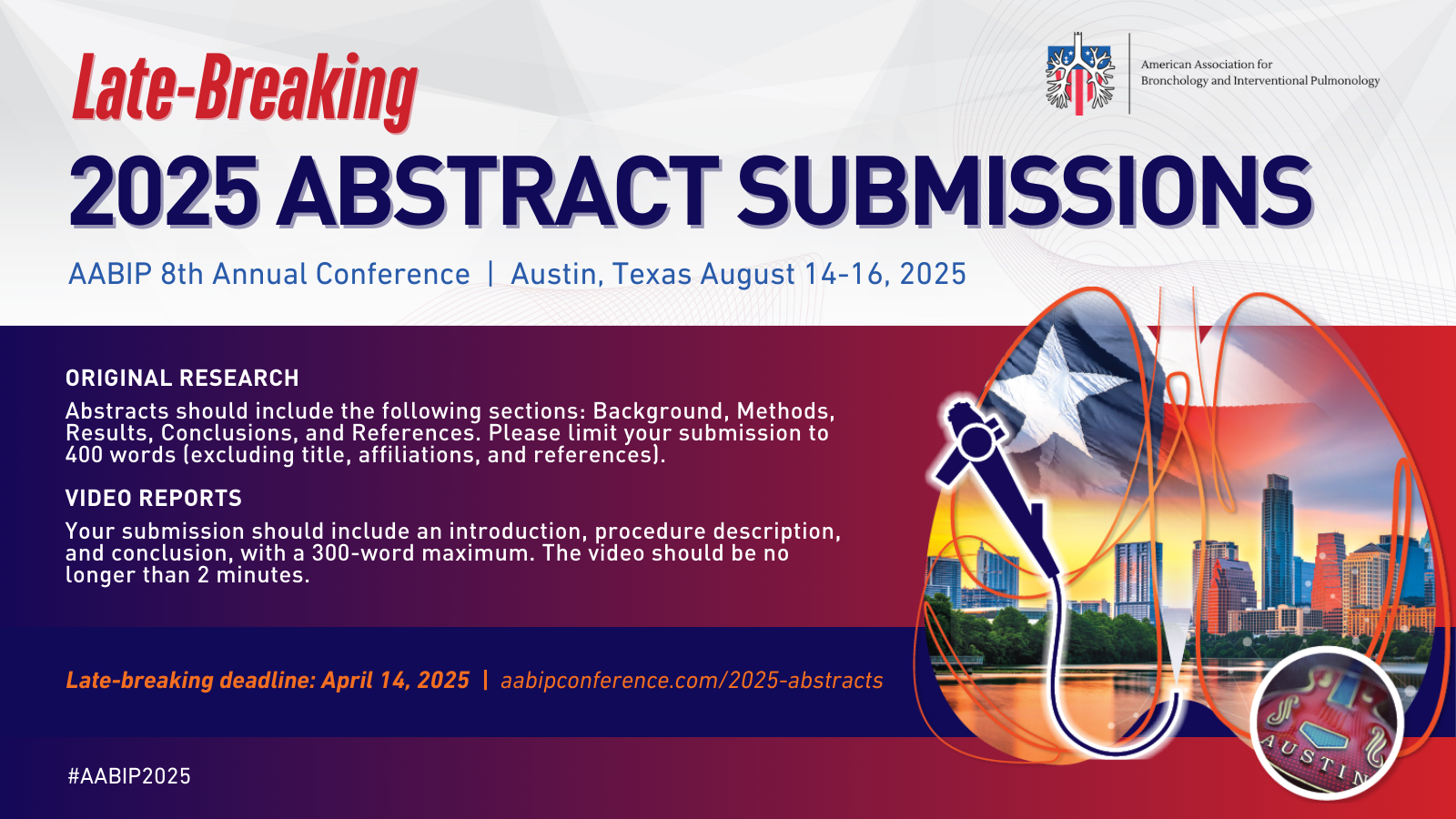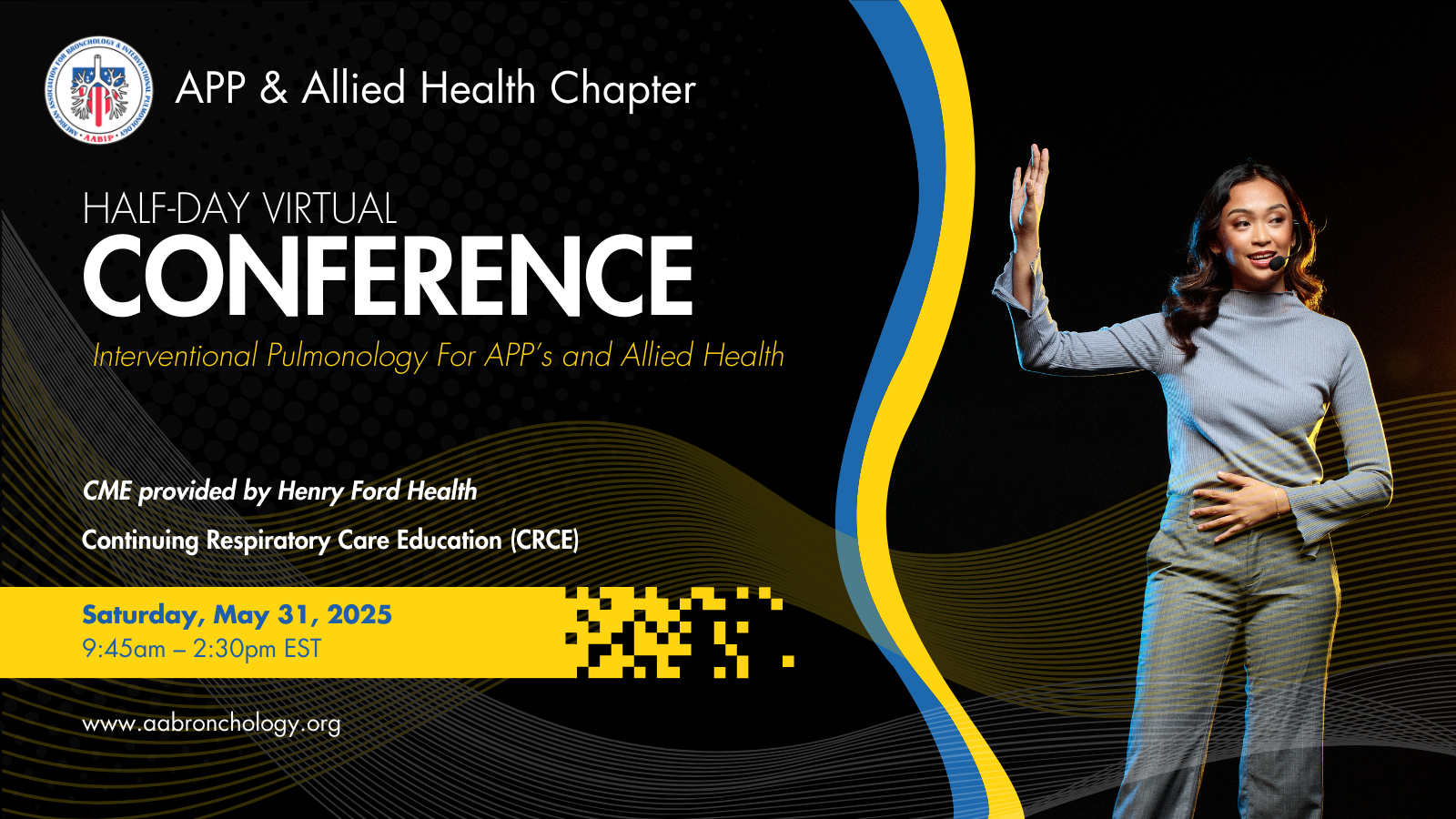IP Board Eligibility Criteria
IP fellowship accreditation committee is a joint responsibility of the AABIP and AIPPD.
NOTES:
- The AABIP reserves the right to audit any applications. The AABIP expressly reserves the right to amend the eligibility criteria
- The AABIP specifically reserves the right to revoke or suspend any certificate obtained by fraud, any material misrepresentation in the application, for failure to maintain an active and unrestricted license to practice medicine, etc.
Date of amended version: 10/03/2023
Track: Recertification Requirements
Those initially certified in 2014 and 2015 are eligible to apply for recertification for the 2023 testing window (view list of IP Certified Physicians)
1. Procedural Requirement for AABIP Board Recertification:Applicants must submit a Form Attesting Interventional Pulmonology Practice (no procedure log required), verifying the performance as the primary operator, co-operator, or supervisor of 100 acceptable interventional pulmonary procedures (see below table) as a combination of airway and pleural procedures during the two-year documentation period (that is two years prior to the date of the Attestation). Specifically:
- For AIRWAY procedures dominant practice, at least 30 acceptable PLEURAL procedures must have been performed in the 2 years prior to the attestation date.
- For PLEURAL procedures dominant practice, at least 30 acceptable AIRWAY procedures must have been performed in the 2 years prior to the attestation date.
If applicants are unable to meet the above requirements, they must complete the Procedural Log which would allow them attest to 25 consecutive procedures, including outcomes, completed as the primary operator as a pathway to completing MOC procedural attestation requirement.
|
Acceptable Procedures
|
Unacceptable Procedures *
|
|
Rigid bronchoscopy
|
Bronchoscopic Navigation
|
|
Endobronchial stenting
|
Image-guided or non-guided chest tube placement
|
|
Bronchoscopy with balloon dilatation
|
Endobronchial Ultrasound
|
|
Endobronchial ablative techniques (Laser, Electrocautery, Argon Plasma Coagulation, Cryotherapy, Cryo-recanalization, Photodynamic Therapy, or Brachytherapy)
|
Bronchoscopic biopsies including cryo-biopsies
|
|
Endobronchial valve placement
|
|
Tunneled pleural catheter placement
|
Percutaneous tracheotomy
|
|
Thoracoscopy
|
|
*considered unacceptable procedures because they are commonly performed by non-interventional pulmonologists or are not mandatory according to the current Interventional Pulmonology Fellowship Accreditation Standards (Mullon et al. CHEST 2017; 151(5):1114-1121)
Posted: 4/11/2023
Track: Eligibility for Clinical Practice Pathway
This pathway will be re-opened for only 2 years (2023 and 2024)
- Only individuals with an MD/DO or equivalent degree are eligible for the Interventional Pulmonology Board Certification examinations.
- Applicants should have completed training in Pulmonary Medicine, Pulmonary and Critical Care Medicine, or Thoracic Surgery from an accredited program in the United States or Canada and should have completed fellowship by the end of 2016. This includes Interventional Pulmonology Fellowship graduates who completed training by the end of 2016 who chose not to take the Interventional Pulmonology Board Examination.
- Applicants must hold a current, active, license to practice medicine in at least one jurisdiction in the United States, its territories, or Canada.
- Licenses that have been revoked, suspended, surrendered, or not renewed in order to terminate or settle disciplinary proceedings do not qualify as meeting the requirements for medical licensure, and all such licenses must be reported for review and consideration.
- All Applicants must have an attestation signed by themselves AND another individual that can attest to their clinical competence, procedural competence, professionalism, moral and ethical practices. The verifying individual needs to be an MD/DO or equivalent, but does not have to be practicing interventional pulmonology (it could be a colleague, mentor, section chief, division chief, or department chair). The attestation should also confirm that a substantial component (33% or more) of the applicant’s professional activity both now and prior to 2016, whether clinical, educational, research, or administrative, takes place within the field of IP. For the attestation of IP practice prior to 2016, a separate letter of attestation from a prior verifying individual is required if the applicant’s practice setting has changed since 2016.
- A procedure log must be submitted by all clinical practice pathway applicants. The minimum procedure requirements are listed in Table 1. These procedures must have occurred within the two years prior to the date of the Attestation.
- Applicants must submit descriptions, including pictures if available, of at least 10 therapeutic rigid or flexible bronchoscopy cases to relieve central airway obstruction (e.g., stent, cryotherapy, cryocanalization, balloon dilatation, laser, argon plasma coagulation, electrocautery, photodynamic therapy, or brachytherapy) from the past 2 years prior to the date of the attestation.
- Applicants will be required to meet procedural requirements in at least 2 of the 3 core procedure groups (Table 1): Core procedure groups are: Complex large airway disease; Advanced diagnostic bronchoscopy; and Pleural disease management).
Posted: 10/22/2023
|




